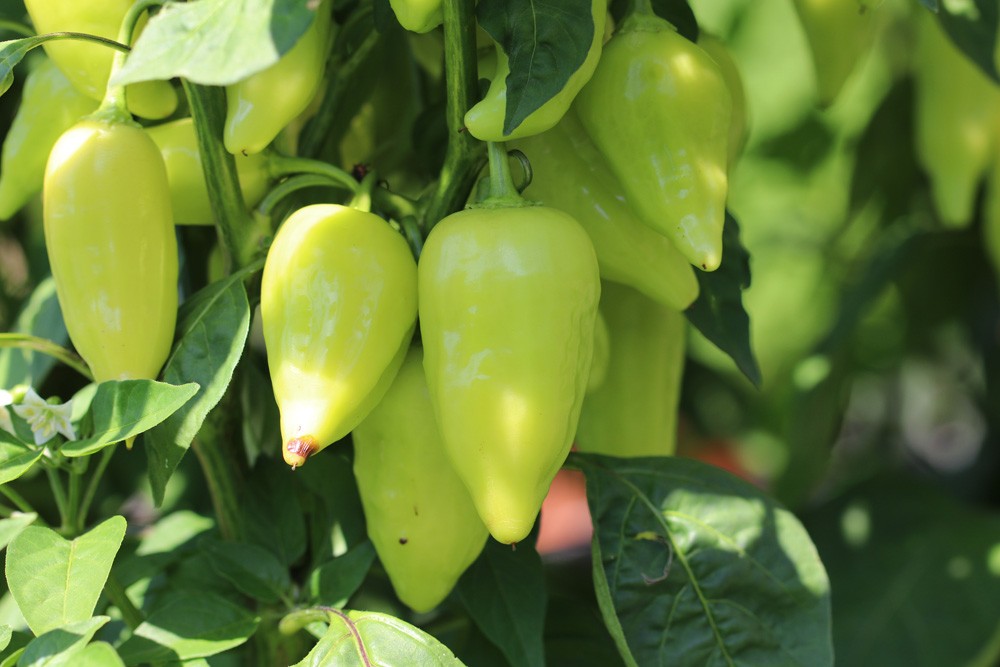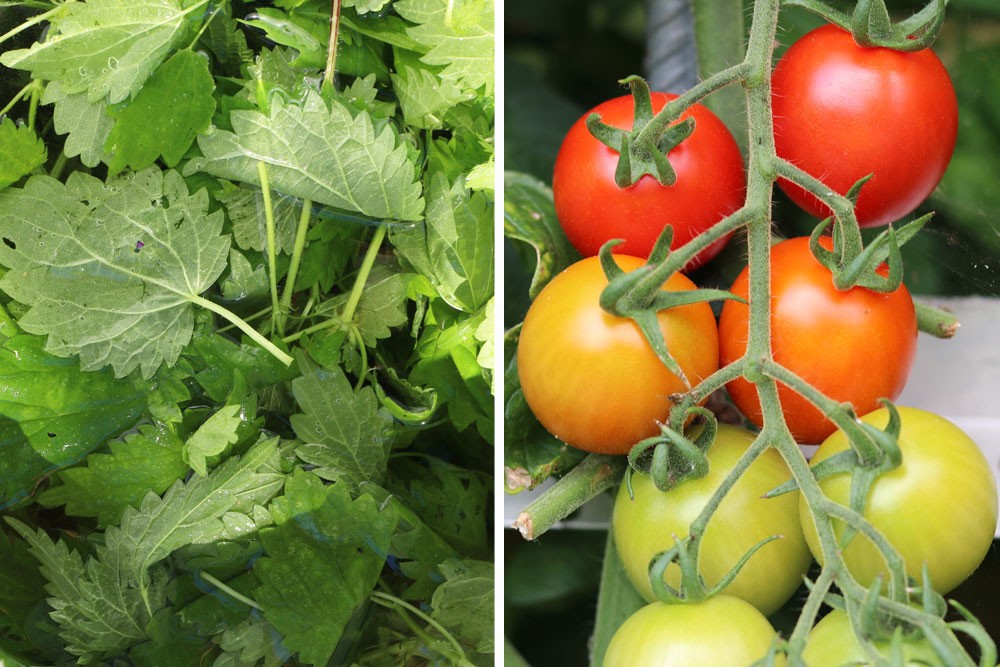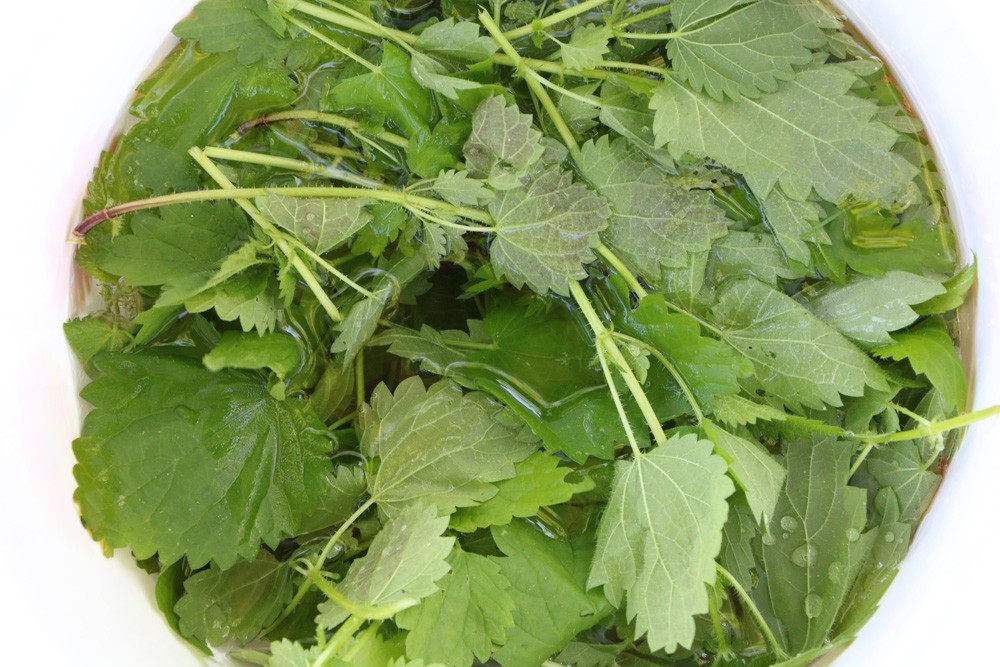Nettles are true all-rounders in the garden, as they can be processed into helpful gardening remedies. Nettle broth, for example, is a proven way to combat pesky aphids. In addition, nettles can be used to make a slurry, which acts as an organic fertilizer and can provide nutrients for numerous types of vegetables.
Contents
Suitable vegetable plants
Nettle liquid manure is particularly suitable for heavily polluted soils and plants that are heavy feeders. These plants have a pronounced nutrient requirement and accordingly extract a high amount of nitrogen from the soil. Since nettle liquid manure is very rich in nitrogen, it can compensate for this imbalance. In addition to tomatoes, the following vegetables, among others, can be fertilized with this organic fertilizer:
- Peppers
- Pumpkin
- Cucumbers
- Potatoes
- Broccoli
- Leek

So-called weak growers, on the other hand, can safely do without this fertilizer, as they are usually satisfied with a nutrient-poor soil. These include, for example, peas, lamb’s lettuce, as well as bush beans.
Effect of nettle liquid manure?
Fertilizing with nettle liquid manure provides the plants with numerous nutrients and also keeps pests such as aphids away at the same time. The nitrogen it contains is essential for plant growth, and a balanced supply of this substance ensures healthy and vigorous growth. In addition, the use of nettle liquid manure has the following positive effects:
- the green coloration of the leaves is stronger
- health of the plants is promoted
- the resistance of the plants is strengthened
How often to fertilize?
As a guideline, healthy, vigorous plants can be fertilized with the liquid manure every two weeks. However, for puny-looking plants, the organic fertilizer can be used once a week. In addition, the ingredients of the nettle liquid manure play an important role, which are directly related to the time of harvest. If the nettles are harvested in May, the liquid manure will be very rich in nitrogen. However, if the harvest takes place later, the nitrogen content decreases and the amounts of magnesium, iron, calcium and sulfur increase. The frequency of fertilizing also depends on the following factors:
- Vegetation condition of the plants
- Nutrient requirements of the plants
- Condition and nutrient content of the soil
What must be taken into account?
Since the nettle liquid manure has a relatively high pH value, it should never be used undiluted as a fertilizer. It is recommended to mix the liquid manure with water, whereby especially inexperienced hobby gardeners, should consider a stronger dilution. The mixing ratio is as follows:
- 1 part liquid manure to 10 parts water
- dilute more for seedlings and young plants
- ideal is: 1 part liquid manure to 20 parts water
- ideally fertilize in the late evening hours
- preferably on cloudy days
- because the plants could burn if exposed to strong sunlight
Making stinging nettle liquid manure – this is how it is done
The nettle liquid manure is very simple to make yourself. For this you need about one kilogram of nettle (that is about 10 stalks of nettle), leaving out the roots. When harvesting nettles, it is advisable to wear gloves and use cutting tools. In addition, a container is needed, which is ideally made of plastic or glass. However, ceramic pots as well as wooden vats are also suitable. To prepare the nettle liquid manure, proceed as follows:
- Put the parts of the plant into the container
- pour water over them, ideally rainwater
- because tap water is usually too calcareous
- all parts of the plant should be well covered with water
- place the container in a sunny place
- Stir once a day
- so that no plant parts stick to the bottom of the container
- let it ferment for about 2 to 3 weeks
- the liquid manure is ready, when no more bubbles rise up
- finally sieve the liquid manure

Tip: During the fermentation process, an odor is produced which many people find unpleasant. However, the odor can be mitigated by adding stone powder or ash to the container. Alternatively, it is also worth adding strongly scented plants, such as lavender.
Storage and shelf life
Provided that the optimal storage conditions are given, nettle liquid manure lasts almost indefinitely and can even be overwintered. Usually, however, the liquid manure is usually used promptly, as its odor is extremely unpleasant. If you still decide to store the nettle liquid manure, you will need a suitable container for it. The same containers are suitable for storage as for production: plastic or glass containers, ceramic pots and wooden vats. To store the liquid manure, it is best to proceed as follows:
- Do not seal the containers airtight
- because the liquid manure needs oxygen
- an air-permeable cover is ideal
- a cloth or board, for example, is suitable for this purpose
- this protects the liquid manure from foreign bodies
- the penetration of pests is made more difficult
- and watering due to rain is prevented.
Tip: If there is no possibility of storage, the nettle liquid manure can be poured into the root area of fruit trees. Likewise, it can be emptied onto the compost or used as fertilizer for the lawn without hesitation.
As a pesticide
Nettle liquid manure is not only an excellent fertilizer, but also drives away the annoying aphids. However, the liquid manure should never be used on sunny days, as this can burn the leaves. In addition, it is important to note the following:
- Dilute nettle liquid manure with water.
- mixing ratio: 1 part of liquid manure to 10 parts of water
- spray the infested plants with the mixture
- repeat several times if necessary
- after a few days the aphids should be driven away


